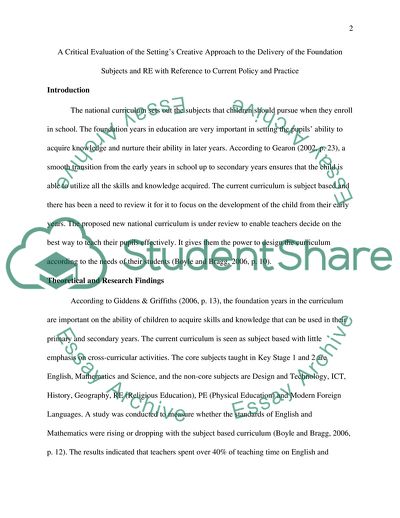Cite this document
(Setting's Creative Approach to the Delivery of the Foundation Subjects Literature review, n.d.)
Setting's Creative Approach to the Delivery of the Foundation Subjects Literature review. Retrieved from https://studentshare.org/education/1791637-a-critical-evaluation-of-the-settings-creative-approach-to-the-delivery-of-the-foundation-subjects-and-r-e-with-reference-to-current-policy-and-practice
Setting's Creative Approach to the Delivery of the Foundation Subjects Literature review. Retrieved from https://studentshare.org/education/1791637-a-critical-evaluation-of-the-settings-creative-approach-to-the-delivery-of-the-foundation-subjects-and-r-e-with-reference-to-current-policy-and-practice
(Setting'S Creative Approach to the Delivery of the Foundation Subjects Literature Review)
Setting'S Creative Approach to the Delivery of the Foundation Subjects Literature Review. https://studentshare.org/education/1791637-a-critical-evaluation-of-the-settings-creative-approach-to-the-delivery-of-the-foundation-subjects-and-r-e-with-reference-to-current-policy-and-practice.
Setting'S Creative Approach to the Delivery of the Foundation Subjects Literature Review. https://studentshare.org/education/1791637-a-critical-evaluation-of-the-settings-creative-approach-to-the-delivery-of-the-foundation-subjects-and-r-e-with-reference-to-current-policy-and-practice.
“Setting'S Creative Approach to the Delivery of the Foundation Subjects Literature Review”, n.d. https://studentshare.org/education/1791637-a-critical-evaluation-of-the-settings-creative-approach-to-the-delivery-of-the-foundation-subjects-and-r-e-with-reference-to-current-policy-and-practice.


